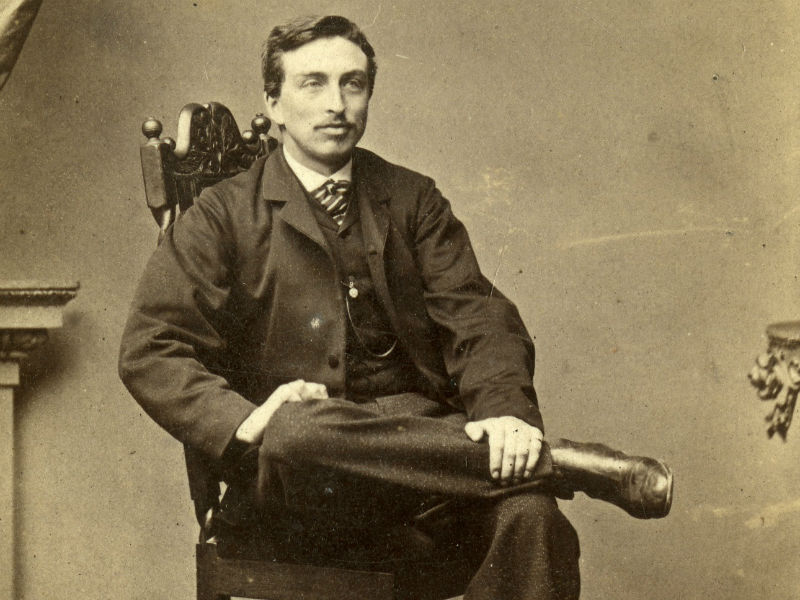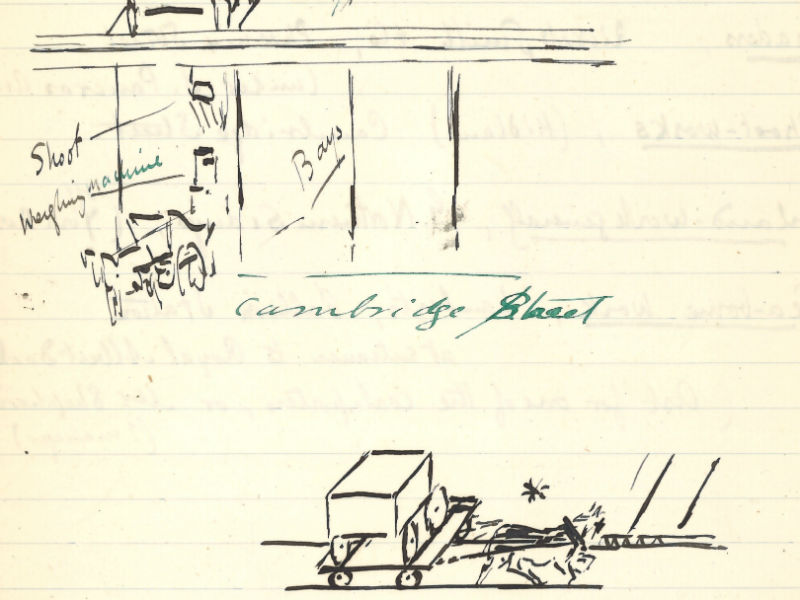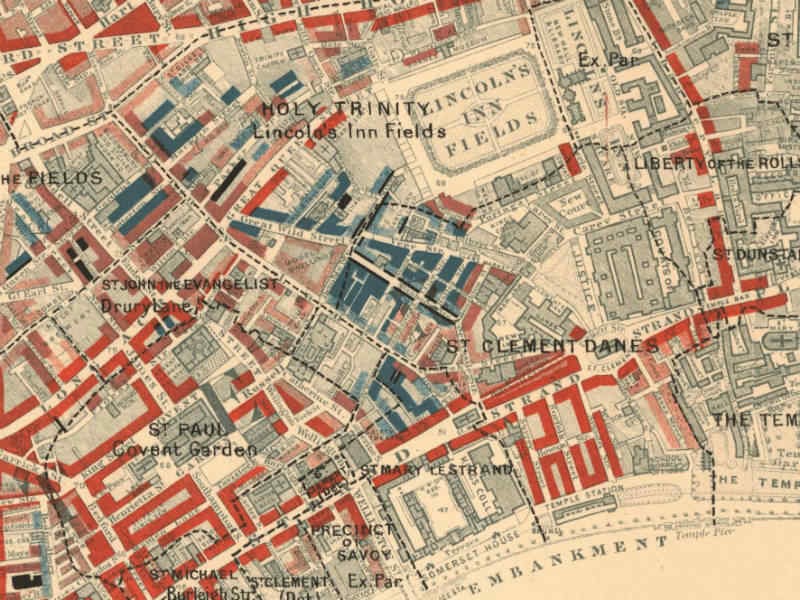Introduction
The archive of Charles Booth's late nineteenth century inquiry holds a staggering amount of original primary source information about London at that time. We hold the archive of this mammoth undertaking including the notebooks, questionnaires and original survey data.
Booth was most interested in surveying London's poverty, work and industries as well as entertainment and the influence of religion in people's lives. This took 17 years and was published as the 17 volume Life and Labour of the People in London.
We have now made the majority of Booth’s notebooks available in digitised formats via LSE Digital Library. This includes PDF files of the bulk of the notebooks.
Our Charles Booth's London website also contains further resources relating to Booth, including an interactive Booth map which stitches together all 12 of the published map sheets into one seamless whole.
 Charles Booth, 1863
Charles Booth, 1863
Maps
Probably the most well-known outcome of the project were the Maps Descriptive of London Poverty. The clear display of Victorian disparities of wealth in London still grips the attention today as it did over a hundred years ago. You can see an interactive version of the second edition maps on the Charles Booth's London website.
We also hold copies of the 12 published map sheets as well as the larger, original hand-coloured working copies of these second edition maps.
Notebooks
The majority of the archive consists of over 400 notebooks in which the investigators gathered the information which informed the final published volumes. Thematically, the archive falls into three main series - poverty, industry and religious influences - reflecting the structure of the published survey of Life and Labour of the People in London.
The Charles Booth's London website also includes digitised versions of 41 notebooks which include the police notebooks and Jewish notebooks (both part of the religious influences series) and the Stepney Union casebooks (part of the industry series).
 Sketch by Jesse Argyle showing coal porters at work from a Charles Booth Industry Survey notebook, 1892
Sketch by Jesse Argyle showing coal porters at work from a Charles Booth Industry Survey notebook, 1892
Poverty
The first part of Booth's inquiry was carried out in the East End of London in order to explore and get a sense of the poverty and (un)employment in the area. The information was gathered with the help of School Board visitors from whom Booth's investigators copied information about streets and households relating to their rent, number of rooms lived in, number of children and work situation. In the catalogue notebooks B1-81 relate to the poverty survey.
Industry
The industry survey was carried out initially in conjunction with poverty survey and then formed the basis for a larger separate study. Patterns of work, wage levels and conditions of employment were investigated from a huge range of different London industries from wigmakers to cricketers. In the catalogue notebooks B82-168 relate to the industry survey.
Religion
The final survey concerned the position of religion in London and the lives of Londoners. While the majority of the survey data was collected via questionnaires sent to churches and other religious/philanthropic institutions, the information gathered extended beyond immediately religious concerns but also included social and moral forces. However the focus extended beyond only religious institutions and directly religious matters but also took into account London's broader social and moral make-up. In the catalogue notebooks B169-392 relate to the religious survey.
 Section of a Booth map showing the area around Lincoln's Inn Fields
Section of a Booth map showing the area around Lincoln's Inn Fields
How to search
Various editions of the final published survey can be found via Library Search and searching for 'Life and labour of the people in London'.
The archive materials can be found by searching our archive catalogue. Searching in the Ref No field for Booth* will bring up all of the archive for browsing. You can also search for material within the archive by entering Booth* in the Ref No field and then searching for terms such as docks in the Any Text field.
Finally it is worth remembering that Booth also had connections to other people and organisations which are held in separate archives, therefore a search in the Any Text field for Booth will also return those results.
How to access
Apart from the published survey volumes which are available to view from the open access shelves, the majority of the Booth material is in our archives and therefore must be consulted in our reading room. Find out how to book your place and order material on our access archives and special collections page.
Further help
If you would like further assistance with searching and getting to grips with the Booth archive then you can get in touch with our curator for Economics and Social Policy, Indy Bhullar